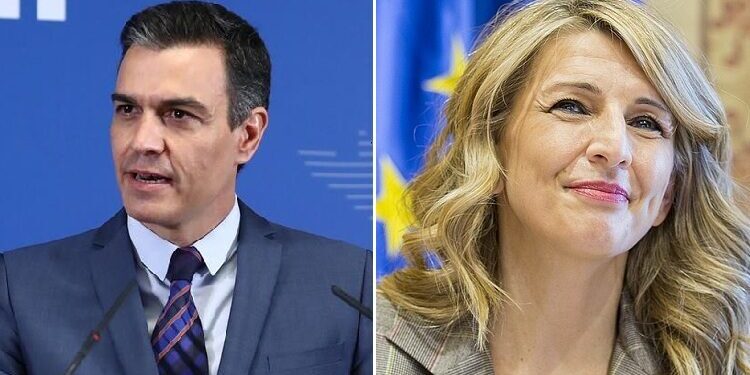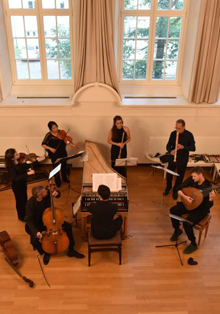Ángel Collado
The internal fights in the three parties of the coalition in government, the PSOE, Podemos and Sumar, continue to focus on the preparation of the electoral lists for the elections of 23 July and confirm the downward expectations of their contenders. Pedro Sánchez is securing a place for his faithful while the far left is betting on survival under the orders of Yolanda Díaz.
Sanchismo is entrenched and Podemos is reluctantly diluted in anticipation of a Partido Popular victory that gives Alberto Núñez Feijóo room to integrate all sectors and personalities of the PP into his candidacy.
There is still a week to go before the official deadline for the presentation of the lists of candidates for deputies and senators, but Sánchez hurried last Friday to leave the PSOE’s lists ready, correcting those of five provinces at the cost of a new clash with the regional leaders of Castilla-La Mancha and Aragón.
The President of the Government showed his absolute control over the Socialist Party by placing his stalwarts, ministers and cabinet team ahead of him in order of personal affinity and commitment. The future Socialist parliamentary group in Congress that emerges from the polls, even if it is reduced in number of members, will be just as pro-Sanchez as the outgoing one in this legislature. It has left no room for renewal.
Given the panorama, the only socialist regional president who remains in office with an absolute majority, Emiliano García-Page in the Junta de Castilla-La Mancha, preferred to absent himself from the federal committee that approved the lists. And so did Javier Lambán of Aragón.
In the other sector of Sánchez’s government, the one grouped at the beginning of the legislature in Podemos with Pablo Iglesias at the head and now divided between the followers of vice-president Yolanda Díaz and ministers Irene Montero and Ione Belarra, the fight over the lists continues. There is a formal coalition agreement whereby the starting positions have been shared out, with no ideological or programme debate. The veto of Irene Montero and the hitherto parliamentary spokesperson Pablo Echenique, who for the moment remain outside the candidacies, ensures the continuity of the internal crisis.
The degree of distrust is such that a Podemos member last week registered the brand “Juntas sí se puede” as a party, a manoeuvre that may appear to be a bluff, but is nonetheless a formation with the capacity to present lists on the 19th in the event of a rupture of the agreement signed with Sumar.
The stark struggle for posts and salaries in the pact between the 15 far-left political groups that Yolanda Díaz brings together leaves eight seats in Congress for what remains of Podemos, now with Belarra as secretary general. This is a quarter of the outgoing parliamentary group that the polls before the 28 March elections predicted would be in decline.
Yolanda Díaz, a communist militant since she was a teenager like her rival Irene Montero, has so little confidence in the formal unity of her coalition that she intends to agree on the conditions of the future divorce in the parliamentary group. In case Podemos breaks up and goes to the Mixed Group after the elections, she wants to agree on the percentage of official subsidies that they keep.
If the fights over the lists show that the socialists and left-wing populists take it for granted that they will not win a majority and are in danger of going into opposition, Alberto Núñez Feijóo’s first announcements about his candidacies suggest that he is sure of winning the elections. He has already placed on the disputed list for Madrid the MP Cayetana Álvarez de Toledo, the PP’s most free verse with all the presidents, and his latest personal signing, the former leader of the PP in the Basque Country Borja Sémper.
In the coming days, the PP president will be unveiling the names of Mariano Rajoy’s former team who are returning to Congress and who, in part, were relegated to the Senate in 2019 by the previous president, Pablo Casado. That was the same manoeuvre of appointments that Pedro Sánchez is now trying out by copying the parliamentary group with his loyalists to ensure the continuity of Sanchezism. The operation was of no use to Casado, and in February 2022, having seen the dark future of his mandate, he had to resign to make way for Feijóo without any objection from the popular parliamentary group.







